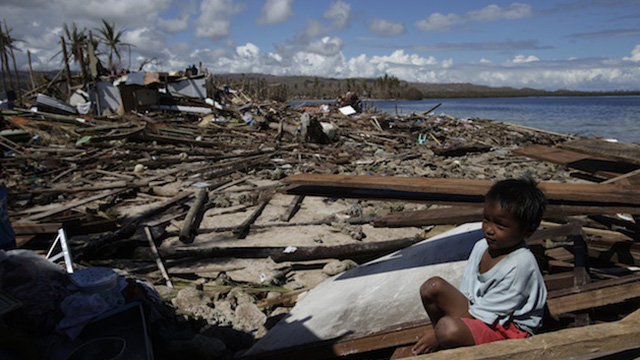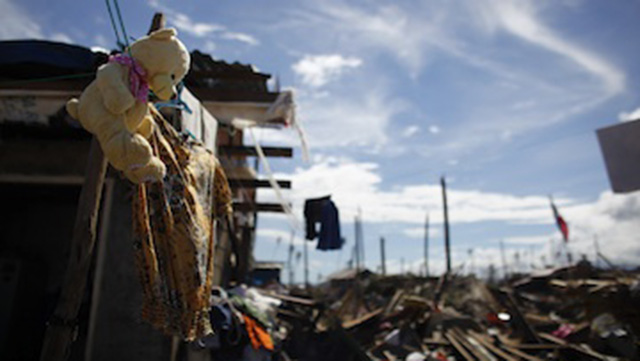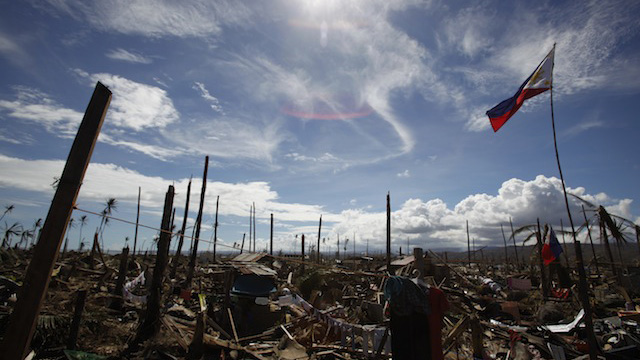SUMMARY
This is AI generated summarization, which may have errors. For context, always refer to the full article.

DAVAO ORIENTAL, Philippines – The island of Poo sits across Sitio Lawis, in Baganga, Davao Oriental, a distance that some islanders once swam when the sea was calm.
“This is isla Poo,” shouts a grinning 43-year-old Dodoy Mijares, who stands barefoot and grimy on a broken slab of wood. “Welcome to paradise, only now we’re in purgatory.”
Most who live in Poo are fishermen, related to each other by blood or marriage. Residents say the population was almost 3,000 before Pablo ripped through the island, today, there is a few hundred. The number of dead is unofficial, some say 9, some say 20. Missing is a word they prefer to use.
There is no food on Poo, only what is left of the few sacks of rice residents were sent as aid. Families have one meal a day. There is little opportunity to fish, with boats and motors broken by the storm, although the men come back with small pans of tiny fish. Couches sit on the beach, tree trunks lie on living room floors, teddy bears hang from clotheslines. The few families left now cook together in what used to be a kitchen, what is now little more than a strip of shiny tile with a single blue-painted wall.
When the sun sets, the island goes dark.
“It used to be that we heard karaoke machines long into the night,” says 22-year-old Meljohn Monteza, whose family is one of the few left in Poo. “Now all you hear are the barking of dogs.”
There was little evacuation on Poo. Residents admit they are responsible, and explain that they did not take the warnings from television and the local barangay seriously. They say many warnings had been made in the past, of tsunamis, earthquakes, storms, that residents stopped loading their boats with valuables to take to the mainland at the sound of alarms.
Antonio Asoqui, a fisherman who broke an arm after the wall he had been hiding behind collapsed, says the fault also lies with the local government. The only possible evacuation center in the island is the elementary school, a building now as broken as the rest of the island’s homes.
“If they were serious about evacuation from the island, they should have provided us a place to evacuate to in the mainland.”
Asoqui and his family now live with other relatives in one of the few homes whose foundation remains unbroken. The walls are gone, the roof is now government-issued tarp, but he would rather be here than in the mainland, where there is nowhere for his family to sleep.
All over the island, there is the sound of hammers pounding tin roofs. Small boys drag basins of clothes salvaged from the rocks to their mothers. Nails are pried off shards of broken wood. Glasses of clean water are passed among residents to share. The children still laugh, but they say they are hungry.
The people of Poo ask for aid—food to eat, a few boats to fish with. If the government does not save them, they hope the sea will. Today, they will wait, and hope that living on an island does not mean they live alone. – Rappler.com

|
Share the Christmas spirit by texting your donation. Rappler’s “Text to Help” campaign makes helping as easy as sending a text message. |
|
Add a comment
How does this make you feel?
There are no comments yet. Add your comment to start the conversation.